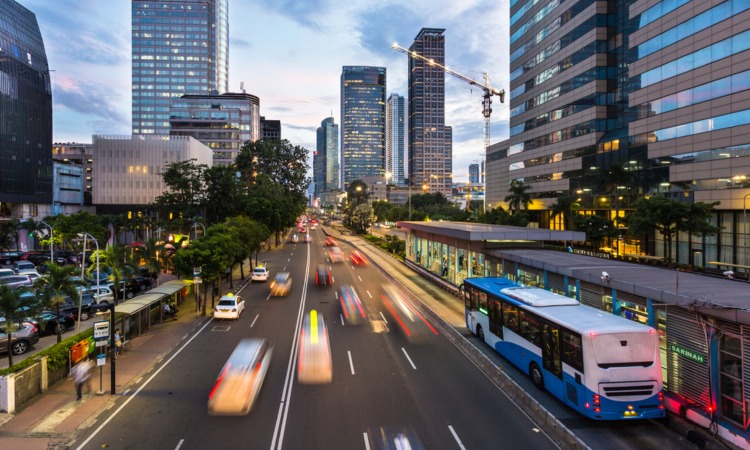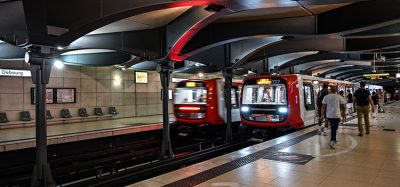New report finds key to effective climate response for metro area transport authorities
- Like
- Digg
- Del
- Tumblr
- VKontakte
- Buffer
- Love This
- Odnoklassniki
- Meneame
- Blogger
- Amazon
- Yahoo Mail
- Gmail
- AOL
- Newsvine
- HackerNews
- Evernote
- MySpace
- Mail.ru
- Viadeo
- Line
- Comments
- Yummly
- SMS
- Viber
- Telegram
- Subscribe
- Skype
- Facebook Messenger
- Kakao
- LiveJournal
- Yammer
- Edgar
- Fintel
- Mix
- Instapaper
- Copy Link
Posted: 27 June 2022 | Intelligent Transport | No comments yet
According to Urban Transport Group’s new report, metropolitan transport authorities have an integral role to play in responding to the global climate crisis by reducing emissions from, and increasing resilience of, transport systems.


A new report, written by Urban Transport Group Director, Jonathan Bray for the global public transport body, the International Association of Public Transport (UITP), shows how new and existing transport authorities can deliver on the carbon reductions and air quality improvements required from transport as part of wider city region and national government targets.
The report has found that transport authorities can achieve this by investing in low and zero-emission vehicle fleets and the supporting infrastructure; generating or purchasing green energy to power public transport fleets; promoting modal shift from the most polluting and carbon intensive transport modes; and improving the resilience of cities to the more extreme weather conditions that climate change is bringing.
With nearly seven out of 10 people expected to live in urban areas by 2050 and with cities now consuming two thirds of global energy consumption and generating 70 per cent of greenhouse gas emissions, the report shows how, by establishing empowered transport authorities, metropolitan areas can respond effectively to the resulting challenges whilst ensuring that urban areas continue to be the engines of national economies.
Launched on 27 June 2022 in Paris, the report sets out the many benefits of metropolitan areas establishing empowered transport authorities (beyond just climate benefits) and provides a guide to the issues and options for those areas who are considering setting one up.
Furthermore, the report shows how transport authorities have been able to address complex challenges and make trade-offs with finite resources and in the context of serving urban areas which are dynamic and constantly evolving. This includes how they can strike the right balance between:
- Spending available resources on maintaining existing infrastructure and expanding that infrastructure
- Facilitating different types of journeys made by different types of people
- Funding raised from the users of public transport networks and funding raised from taxation and by other means
- Competition and regulating in the public interest.
The report also identifies four key contemporary challenges for urban transport governance, which includes:
- Making timely decisions on how best to reduce carbon emissions whilst improving climate resilience
- Realising the consumer benefits of new technologies, new mobility formats and business models whilst at the same time protecting the wider public interest
- Balancing the need to improve the quality of place with providing access to those places
- Ensuring that transport authority governance reflects the full diversity of the places it serves in the way it works and in the decisions it takes.
Mohamed Mezghani, Secretary General of UITP, said: “Public transport will be vital to the recovery of the economy and society in a post-COVID 19 world and in combatting climate change. However, these objectives will not be possible without the planning and organisation of strong transport and mobility authorities. They are key in ensuring that public transport services are provided with public policy goals in mind whilst also considering citizens’ expectations.”
Jonathan Bray, Director of the Urban Transport Group, who authored the report, said:
“I hope this report can help provide an accessible and non-technical guide to the benefits of metropolitan area transport authorities as well as the issues around establishing them and the options for the different forms they can take. Although no one size fits all, and all governance is fluid, I strongly believe that transport authorities are a key building block for a better future for metropolitan areas and as the Director of the Urban Transport Group in the UK, I am delighted that we have been able to work with our fellow transport authorities around the world on this initiative.”
Related topics
Air Quality, Mobility Services, Multimodality, Passenger Experience, Public Transport, Sustainable Urban Transport
Related modes
Bus & Coach
Related organisations
International Association for Public Transport (UITP), Urban Transport Group
Related people
Jonathan Bray, Mohamed Mezghani








